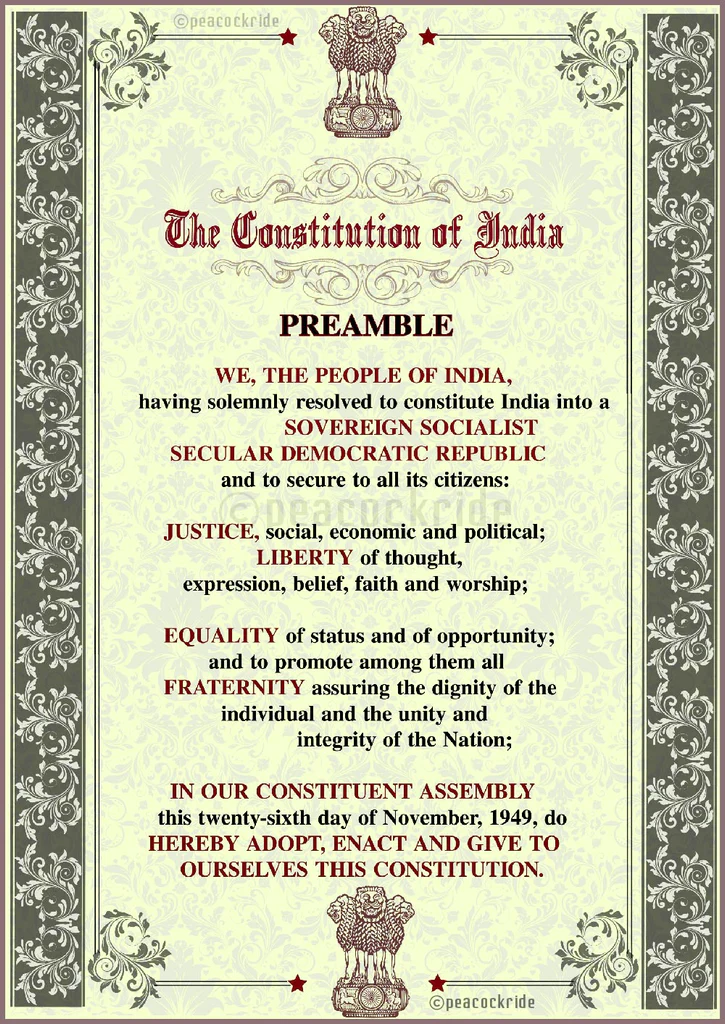The Constitution of India has 395 articles in 22 parts. After several amendments to the Indian Constitution, additional articles and parts were add on later. It also has 12 Schedules of Indian Constitution.

PREAMBLE OF CONSTITUTION
WE THE PEOPLE OF INDIA a, having Solemnly resolved to Constitute India into a [SOVEREIGN SOCIALIST SECULAR DEMOCRATIC REPUBLIC] and to secure to all its Citizens:-
JUSTICE, Social, Economic and political;
LIBERTY of thought, Expression, belief, Faith and Worship.
EQUALITY of status and of opportunity and to Promote among them all.
FRATERNITY Assuring the dignity of the Individual and the “(unity and integrity of the nation)”.
IN OUR CONSTITUTION ASSEMBLY this twenty sixth of November, 1949 do HEREBY ADOPT, ENABLE AND GIVE TO OURSELVES THIS CONSTITUTION.
Key words in the Preamble
- We, the people of India: It indicates the ultimate sovereignty of the people of India. Sovereignty means the independent authority of the State, not being subject to the control of any other State or external power.
- Sovereign: The term means that India has its own independent authority and it is not a dominion of any other external power. In the country, the legislature has the power to make laws which are subject to certain limitations.
- Socialist: The term means the achievement of socialist ends through democratic.
- It was added in the Preamble by 42nd Amendment, 1976.
- Secular: The term means that all the religions in India get equal respect, protection and support from the state.
- It was incorporated in the Preamble by 42nd Constitutional Amendment, 1976.
- Democratic: The term implies that the Constitution of India has an established form of Constitution which gets its authority from the will of the people expressed in an election.
- Republic: The term indicates that the head of the state is elected by the people. In India, the President of India is the elected head of the state.
Be the first to reply